Weights and Measures, by Joseph Roth
Once upon a time in the District of Zlotogrod there lived an Inspector of Weights and Measures whose name was Anselm Eibenschütz.
That’s the first sentence of Weights and Measures. Those first four words are among the most iconic in storytelling. Immediately they create a sense of distance but also of the fabulous. Here they are the precursors to a story about a local government inspector’s marital problems and his attraction to a local criminal’s woman. What could be fabulous in that?
Herr Eibenschütz, the inspector, is a former artilleryman who resigned his service in the army at the urgings of his wife.
He had married, as almost all long-serving non-commissioned officers are in the habit of doing. Ah, they are lonely, the long-serving non-commissioned officers! They see only men, nothing but men! The women they encounter flutter past them like swallows. They marry, the non-commissioned officers, to keep hold of at least one swallow, as it were.
I thought that the most beautiful of images. It shouldn’t really work as a paragraph. It contains a great deal of repetition (as do several other passages). Even so it does work. It reads like a fairy story; a fable. It captures a palpable sense of loneliness and the sheer need for another human being to call one’s own.
Eibenschütz sadly did not choose his swallow well. He was happy as an artilleryman and is less so as an inspector of weights and measures. He doesn’t even work for the central government as he is entitled by virtue of his old rank, but only for the local municipality. He takes his task seriously though and travels through the district accompanied by his imposing gendarme checking the honesty of the local traders and shopkeepers. It is unfortunate that they are all dishonest and that none of them has an accurate weight or measure save those they save for his visits. The old inspector was not so scrupulous in his duties.
Eibenschütz then is an honest man in a land of thieves. All are corrupt save him and this does not make him loved. At home things are little better. He captured his swallow, but not love.
For a long time now he had made a habit of going to sleep as soon as they climbed into bed at night, into the two beds pushed closely together, and he no longer spared a glance for her naked body as she undressed before the mirror, perhaps in the hope that he might desire her still. Sometimes she asked him, standing there naked, whether he loved her. She really meant whether he found her beautiful. ‘Yes, of course!’ he said and yielded to sleep, not least to escape the pangs of conscience which his lie might yet produce.
There’s an extraordinary air of melancholy to this book. It opens with Eibenschütz married. His happiness in the army and his loneliness at being without a companion are both already past. Much worse though than being alone is being with someone for whom you have no feeling. This is a book suffused with loneliness.
Soon Eibenschütz suspects his wife of having an affair. She seems too happy and too beautiful. Here only the illicit are ever happy. Rectitude has no rewards.
Suddenly, too, he saw how she had altered. A new, large, tortoise-shell comb held the knot of her thick dark-blue-gleaming hair together. Large golden earrings which she had not worn for a long time, earrings on which dangled tiny delicate golden discs, trembled on her earlobes. Her dark-brown countenance had recovered quite a youthful, indeed a maidenly, ruddy hue. One might say that she looked again as she had looked in the past, as a young girl, when he had first met her in Sarajevo, where her uncle, the master-at-arms, had invited her for the summer.
I won’t say too much more. Eibenschütz discovers the identity of his wife’s lover and and learns that she is pregnant by him (he realises when from nowhere she speaks of how good it would be for their marriage to have a child). His home is no longer welcoming. “Not even the cat would come up to him, as it had done in former times, and allow itself to be stroked.” In his sorrow he takes to frequenting a border tavern owned by the notorious outlaw Jadlowker. It is there that he sees the gypsy woman who shares Jadlowker’s bed, and becomes infatuated with her.
As plots go this one couldn’t be much simpler. It’s a story of love, rivalry and infidelity. There is nothing original to it. It does not aim for originality. What there is though is a clash of ways of life. Eibenschütz is an agent of the state. He tries to impose its rules on a region where by his standards normality is crooked. Jadlowker lives on the border. He is rumoured to have murdered a man in Odessa with a sugar-loaf. He is Eibenschütz’s opposite. He is chaos and lawlessness. He is on the boundary between civilisation and a great dark forest beyond which lies another world (or, more prosaically, Russia).
Like the Austro-Hungarian Empire itself Eibenschütz tries to impose order where there is no place for it. It is in a sense a heroic enterprise, but it cannot succeed. Jadlowker by contrast is free. He has no government to report to and no morality. His freedom is a freedom to do what he wills. He is a killer and a thief.
Roth makes the district of Zlotogrod breathe. He captures its customs such as the way the people rush out in the middle of the night to celebrate the arrival of spring; heralded by the first cracks appearing in the ice which each year coats the local river. The government is far away and they have their local doctors and local courts and when a man needs order he goes to one and when he needs freedom he goes to Jadlowker’s.
The heart here though is Eibenschütz. As he falls genuinely in love with Jadlowker’s gypsy he begins to notice the world about him. He notices the birds singing in the spring and their absence in the winter. He notices the stars overhead and how they seem not meaningless lights as they used to but friendly companions in the night. Nature and the cosmos both change to match the moods of Eibenschütz, Jadlowker and others.
At first I thought the matching of nature and mood thematic. I thought Roth was choosing for the seasons and the sky to follow the narrative. Then I realised that he was doing nothing of the kind. Nature and the sky remain unchanged throughout the book save that the seasons turn as they always do. Men just change their interpretations according to their sentiments and find meaning where there is none.
Weights and Measures is a fable, but it is a dark and sly one. The world here seems suffused with meaning, but gradually it became apparent that the meaning was only ever that which the characters gave it. It was written in 1937 and it contains no hope. The best that can be achieved in Zlotogrod is to leave it.
This is not a well known Roth. I found few reviews of it online and it hasn’t the recognition factor of Hotel Savoy, The Radetzky March or The Legend of the Holy Drinker. It’s not one of his major works. It is, however, beautiful and haunting and superbly written. I’ll finish with one final quote. Here Eibenschütz’s gendarme has been speaking of his own troubles after hearing of those of Eibenschütz himself.
Eibenschütz had long since ceased to listen. But it did him good that a man was speaking beside him, just as it sometimes does one good when the rain is pouring down, even if one does not understand the language of the rain.
The language of the rain. Roth shows a world which is venal and mundane and then makes it fabulous through the sheer beauty of his art. I intend to write a post soon about my personal canon; the works I consider central to my concept of literature. Roth will be on it.
The copy of Weights and Measures I read was published by Peter Owen Classics and translated by David Le Vay. Given how the language sang I’ll look out for Le Vay’s translations in future.
Update: 25 November 2014. Caroline of Beauty is a Sleeping Cat has now also reviewed this. Her excellent review is here.


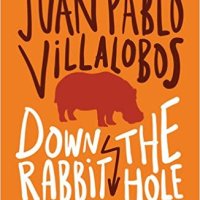

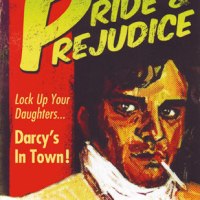
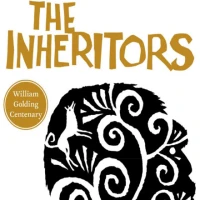


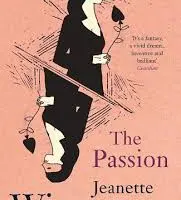
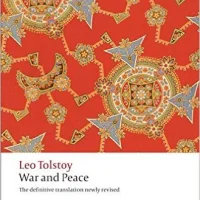





I saw that you were reading this, and I was really curious to see what you’d make of Joseph Roth as I have a couple of his titles (not this one) on my shelf. The main character, the Inspector, reminds me very much of Fassbinder’s Stationmaster from The Stationmaster’s Wife (one of my all time favourite films).
I think I’d like this, but I’m going to hold back and read the Roths I have first.
Literally, one swallow doesn’t make a summer.
I’ve never read him but I’d probably like this one. Thanks, it sounds beautifully written and very sensitive.
Lovely review Max. I need to read more Roth.
It’s not my first Roth. I’ve read some of his essays and Hotel Europa.
I rate him higher than Zweig, which seems the most obvious point of comparison. That said comparisons can be very misleading and he’s not doing quite the same stuff as Zweig (and Hoffman notwithstanding I still like Zweig too).
Beautifully written and sensitive are good words for Roth actually.
Leroy, yes you do 🙂
I have not read Roth either (but, like others, have volumes on hand). I do find this review persuasive — I’m thinking that this might be a better place to start than the other, longer novels.
I always think of Roth as a “way in” to my ultimate mitteleuropean reading goal: Robert Musil. And for now I’m thinking of Zweig as a way in to Roth.
There’s so much great stuff from, about, around this time and place, isn’t there? There’s a definite sensibility that comes from the decay, the stagnation, the sense of wasteful complexity that I associate with the latter Hapsburg era. I’m thinking of Szerb, Kosztolanyi, Von Rezzori, Svevo and of course the likes of Kakfa, Schulz etc. And that’s only scratching the surface.
Incidentally, the Kersh arrived today, many thanks again – it’s a smart edition.
Kevin,
The one I started on and would recommend others start on is Hotel Europa. It’s very short (though so’s this one actually) but it’s meaty in terms of symbolism and atmosphere. It’s very rewarding. That said, this is by no means a bad place to start. It isn’t though one of his major works. Hotel Europa is both a major work and very short – a handy combo…
Leroy,
Musil, brave. Penguin at the moment has a bunch of £3 short texts and the other day in Waterstones (which I hardly ever go into anymore) the guy behind the counter recommended the Musil from that collection. It’s feuilletons – short essays a bit like Roth used to do too. That will be my entry to Musil I think.
It’s an extraoardinary period writingwise. I’d add Ernst Weiss who wrote the best novella I have yet read and Arthur Schnitzler to your list. I must read Von Rezzori and Schulz now you remind me. But then there’s so much I should read.
I still have particular affection for Szerb. His Pendragon Legend was just such utter fun.
Oh, the Weiss was Jarmila. If you look under Weiss in the Categories you’ll find it if you’re curious. A superb work.
Feuilleton – http://en.wikipedia.org/wiki/Feuilleton
The other Joseph Roth I’ve written up here is a collection of his feuilletons about Germany. The only writer I know today who regularly writes them is Eco – his Travels with a Salmon and other Essays is basically feuilleton. They’re fun little things, which is sort of the point, but were never part of the English language tradition (so far as I know anyway).
I saw The Pendragon Legend on the shelf while I was browsing the other day and picked it up. I like those Penguin minis; I didn’t see the Musil one but I did get the Nabokov as I’ve read raves about the story “Spring in Fialta” it contains. Must go back for the Musil. Schnitzler, yes, totally forgot about him.
I’ll check your review of What I Saw as well. I had that in my hand a couple of years ago but put it back for some reason. I haven’t heard of Weiss before but he’s obviously worth a look as well….the list grows!
Did you see who the translator was of the Nabokov? Oddly I couldn’t.
I found this Coetzee review of Roth online and thought it might be of interest: http://www.nybooks.com/articles/archives/2002/feb/28/emperor-of-nostalgia/
I didn’t notice the transaltor, I can check when I have the book to hand.
That’s an interesting article. Coetzee writes wonderfully thoughtful and informative reviews (I’m thinking of his NYRB one about Robert Walser as well). Quite a life Roth had. I was struck by the sentence about the sudden, precipitous loss of status experienced by Vienna after thw 14-18 war. Unlike other great capitals, it wasn’t destroyed or occupied, it just suddenly became…a backwater.
What’s remarkable with Austro-Hungary is the rapidity of the loss of empire and status. The British empire took decades for its decline to be wholly apparent. Even in the 1960s people seem to have been kidding themselves that we were still a player.
The US’s recent loss of hegemon has been very rapid, but it’s not necessarily irreversible (particularly if China fell apart for some reason) and in any event US fiction has always been inward looking so it’s having much less impact.
Austro-Hungary though vanished. Suddenly people went from being writers operating within the capital of a massive multicultural behemoth to being citizens of a minor state. That coupled with an already strong literary tradition lead I think to some remarkable works.
Then the Nazis came and rather put a stop to it all by killing or otherwise suppressing all the writers involved. It’s notable how many writers I love were killed by them.
Strange, no mention of translator in the Nabokov mini. Do I take it from that that Nabokov tranlsated the stories himself? Perfectly possible I suppose. I picked up the Musil (Flypapers) which does list translator.
It’s apt in a way that the Hapsburg dominion was dissolved by an essentially administrative gesture….
I almost got the Nabokov, but got the Dorothy Parker in the end instead. I already have unread Nabokov and Parker has never vastly tempted me. It seemed more in the spirit of the Penguin series to use it as a chance to try her out.
I like your review very much. It seems as if the same things spoke to us. That final quote is so lovely.
I need to read Hiob soon because that’s always said to be one of his best – after The Radetzky March – of course.
I’m discovering a totally different Roth now in reading The Flight Without End.
Very much so Caroline. Reading mine again I see I picked up on very similar themes to you. It’s a lovely book isn’t it, though terribly sad.
Flight Without End I don’t know. I’ll look out for your review. Have you read his Hotel Europa?
Pingback: language is our only home | Pechorin's Journal